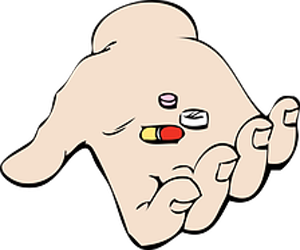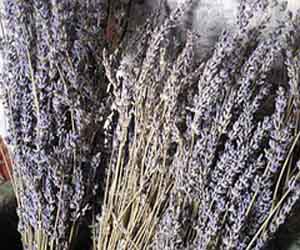


A Comparative Exploration

The use of herbal remedies to address various health concerns is an ancient practice with roots dating back thousands of years. However, in our modern era, where pharmaceuticals and advanced medical treatments are readily available, the debate between traditional and modern herbal remedies has gained momentum. In this article, we'll explore the key differences and similarities between traditional and modern herbal remedies and examine the contexts in which each approach shines.
Traditional Herbal Remedies
Traditional herbal remedies are deeply ingrained in the history and culture of societies worldwide. They are often passed down through generations and rely on the accumulated knowledge and practices of indigenous communities. Here are some of their defining characteristics:
Cultural Significance: Traditional herbal remedies carry cultural significance and are often closely tied to the identity and heritage of specific communities. They reflect the wisdom and experience of generations past.
Holistic Approach: Traditional remedies often take a holistic approach, considering not only physical symptoms but also emotional and spiritual aspects of well-being. They emphasize the interconnectedness of body, mind, and spirit.
Time-Tested: Traditional remedies have withstood the test of time, proving their efficacy over centuries of use. Their long history speaks to their value and reliability.
Plant Synergy: Traditional remedies often use whole plants or plant parts, believing that the synergy of various compounds within the plant is key to their therapeutic effect.
Modern Herbal Remedies
Modern herbal remedies, on the other hand, represent a more recent evolution of herbal medicine. They integrate traditional knowledge with modern scientific understanding and technology. Here are some key aspects of modern herbal remedies:
Scientific Validation: Modern herbal remedies benefit from extensive scientific research and clinical studies. They undergo rigorous testing to confirm their efficacy and safety.
Standardization: Modern herbal remedies often involve the extraction and standardization of active compounds. This ensures consistent dosages and reliable results.
Integration With Conventional Medicine: Modern herbal remedies are frequently used alongside conventional medical treatments in integrative medicine. This approach offers patients a broader range of therapeutic options.
Quality Control: Modern herbal remedies adhere to quality control standards, addressing concerns about variability and contamination often associated with traditional preparations.
Balancing Tradition And Innovation
Both traditional and modern herbal remedies have their merits, and the choice between them often depends on individual preferences and circumstances. In some cases, traditional remedies may offer a holistic approach that resonates with individuals seeking a deep connection to cultural heritage and natural healing. On the other hand, modern herbal remedies provide the advantage of scientific validation, safety standards, and the ability to integrate them into mainstream healthcare.
The traditional vs. modern herbal remedies debate underscores the dynamic nature of herbal medicine. While traditional practices offer a rich tapestry of holistic healing wisdom, modern approaches bring rigor and innovation. Ultimately, the choice between these two paths may depend on an individual's health goals, cultural ties, and the desire for evidence-based, holistic, or complementary healthcare solutions.
Finding Tranquility In Scents
 Understanding Aromatherapy
Understanding Aromatherapy
Aromatherapy is an age-old practice that harnesses the therapeutic properties of essential oils, which are concentrated extracts derived from various plants. These oils contain a wide range of natural compounds, each with its unique fragrance and healing potential. When inhaled or applied to the skin, essential oils can have a profound impact on our bodies and minds, making them a valuable tool for managing stress.
Calming The Mind And Body
Aromatherapy promotes stress relief by calming the mind and body. Essential oils such as lavender, chamomile, and bergamot are known for their relaxing and anxiety-reducing properties. The mere inhalation of these fragrances can trigger a sense of calm, slowing the racing thoughts and soothing frayed nerves. This immediate effect on the mind sets the stage for holistic stress relief.
Physical Relaxation
Stress often manifests physically, leading to tense muscles, headaches, and other discomforts. Aromatherapy can alleviate these physical symptoms by encouraging relaxation. Oils like eucalyptus and peppermint can ease muscle tension and relieve headaches, providing a sense of physical well-being that complements the emotional aspect of stress relief.
Emotional Balance
Emotions are closely linked to stress, and aromatherapy can help restore emotional equilibrium. Scents like rose and ylang-ylang are known for their mood-enhancing qualities, uplifting the spirits and promoting emotional balance. This emotional support is a crucial component of comprehensive stress relief.
Mental Clarity
Stress can cloud our minds and hinder our ability to focus and think clearly. Aromatherapy offers a solution by enhancing mental clarity and reducing mental fatigue. Oils like lemon and rosemary are particularly effective at improving cognitive function, helping us regain control over our thoughts and actions.
The Crucial Connection Between Diet And Lifestyle
 Conversely, a diet high in processed foods, excessive sugars, and unhealthy fats can lead to chronic conditions such as obesity, diabetes, and heart disease. It can also contribute to mood swings and fatigue, affecting our daily productivity and overall quality of life.
Conversely, a diet high in processed foods, excessive sugars, and unhealthy fats can lead to chronic conditions such as obesity, diabetes, and heart disease. It can also contribute to mood swings and fatigue, affecting our daily productivity and overall quality of life.
Lifestyle: The Canvas Of Well-Being
Your lifestyle encompasses the daily choices you make - how you spend your time, your activity level, sleep patterns, and stress management. It's the canvas upon which your health is painted. Regular exercise, adequate sleep, and stress reduction techniques are vital components of a healthy lifestyle. Exercise not only helps maintain a healthy weight but also boosts mood, enhances cardiovascular health, and increases longevity. Sleep, on the other hand, is when your body repairs and rejuvenates itself. A lack of quality sleep can lead to a weakened immune system, cognitive impairments, and an increased risk of chronic diseases.
Furthermore, the ability to manage stress effectively is a cornerstone of a healthy lifestyle. Chronic stress can lead to a variety of health issues, including anxiety, depression, and digestive problems. Implementing stress-reduction techniques such as mindfulness, meditation, or engaging in hobbies you enjoy can make a significant difference in your overall well-being.
 Problem-Solving: Resilient individuals are better problem solvers. They approach challenges with a positive mindset, seeking solutions rather than dwelling on the problems.
Problem-Solving: Resilient individuals are better problem solvers. They approach challenges with a positive mindset, seeking solutions rather than dwelling on the problems.
Enhanced Productivity: Resilience often leads to increased productivity. Employees who bounce back from setbacks quickly are less likely to get derailed by obstacles, allowing them to stay focused on their goals.
Fostering Resilience In The Workplace
Promote A Supportive Work Environment: Encourage open communication, where employees feel safe to share their concerns and seek help when needed. A culture of support can make a significant difference in employees' ability to cope with challenges.
Provide Training And Resources: Offer resilience training programs and resources to help employees develop their skills. This can include stress management workshops, mindfulness sessions, or emotional intelligence training.
Set Realistic Goals: Ensure that employees have clear and achievable goals. Unrealistic expectations can lead to stress and burnout. Encourage employees to break down their objectives into manageable tasks.
Celebrate Small Wins: Recognize and celebrate both individual and team achievements. Acknowledging progress, even if it's incremental, can boost morale and motivation.
Encourage Work-Life Balance: Promote a healthy work-life balance to prevent burnout. Encourage employees to take breaks, use their vacation days, and find time for activities that rejuvenate them.
Lead By Example: Managers and leaders play a crucial role in modeling resilience. When employees see their leaders handle challenges with grace and a positive attitude, they are more likely to do the same.
The Benefits Of A Resilient Workplace
A resilient workplace is not only more productive but also more engaged and satisfied. Employees who feel supported and are equipped to handle the ups and downs of their jobs are happier and more likely to stay with their organizations.
Moreover, resilient organizations are better positioned to weather economic downturns, industry changes, and unexpected crises. They adapt quickly, find innovative solutions, and maintain a positive corporate culture even in challenging times.






Fueling Your Health And Well-Being
 Understanding Eating Habits
Understanding Eating Habits
Eating habits are the routines and behaviors associated with our food consumption. These habits encompass not only what we eat but also how we eat, when we eat, and why we eat. They are shaped by various factors, including cultural, social, emotional, and environmental influences. Our eating habits are a reflection of our relationship with food, and they can have both positive and negative consequences.
The Impact Of Eating Habits
Nutritional Health: Eating habits directly affect our nutritional health. A balanced diet that includes a variety of nutrients is essential for the proper functioning of our bodies. Healthy eating habits can reduce the risk of chronic diseases and promote overall wellness.
Weight Management: Our eating habits have a significant impact on weight management. Overeating, frequent snacking, or consuming unhealthy foods can lead to weight gain and obesity, while mindful eating and portion control support weight maintenance.
Mental Health: Eating habits are linked to mental health. Emotional eating, stress eating, and disordered eating patterns can negatively affect our emotional well-being. Conversely, a balanced diet with the right nutrients can support mental health and cognitive function.
Energy Levels: The foods we consume can impact our energy levels. Poor eating habits, such as consuming sugary or processed foods, can lead to energy spikes and crashes, while a diet rich in complex carbohydrates, protein, and fiber provides sustained energy.
Digestive Health: Eating habits also influence digestive health. Consuming fiber-rich foods, staying hydrated, and practicing portion control contribute to a healthy digestive system and prevent issues like constipation or indigestion.
Cultivating Healthy Eating Habits
Mindful Eating: Pay attention to what you eat and how it makes you feel. Eat slowly, savor each bite, and listen to your body's hunger and fullness cues.
Balanced Diet: Strive to include a variety of whole foods in your diet, such as fruits, vegetables, lean proteins, whole grains, and healthy fats. Avoid excessive consumption of processed foods and added sugars.
Nurturing The Body And Mind
 The Power Of Botanicals
The Power Of Botanicals
Botanicals, or plants, have been used for centuries in traditional healing practices. These plants offer a rich source of natural compounds with various therapeutic properties. Holistic healing with botanicals involves using plants in multiple forms, including teas, tinctures, essential oils, and herbal supplements. Here are some key botanicals commonly employed in holistic healing:
Turmeric: Known for its potent anti-inflammatory and antioxidant properties, turmeric can alleviate conditions related to inflammation, such as arthritis and digestive issues.
Ginger: Ginger's soothing effects on the digestive system and its anti-nausea properties make it a staple in holistic healing.
Echinacea: Echinacea is often used to strengthen the immune system and ward off colds and infections.
Peppermint: Peppermint is renowned for its ability to soothe headaches, improve digestion, and calm the mind.
Lavender: Lavender essential oil is cherished for its calming effects, helping to reduce stress, anxiety, and improve sleep.
Valerian Root: Valerian root is used to treat insomnia, anxiety, and nervousness, promoting a sense of tranquility.
Chamomile: Chamomile's gentle qualities make it an excellent choice for reducing stress and promoting relaxation.
Balancing The Body And Mind
Holistic healing with botanicals aims to create a sense of equilibrium within the body and mind. It's not just about treating symptoms but addressing the underlying causes, which can often be stress, emotional turmoil, or imbalances in the body. By considering the person as a whole, holistic healing seeks to improve not only physical health but emotional and mental well-being as well.
Safety And Guidance
When delving into holistic healing with botanicals, it's crucial to seek guidance from a trained herbalist or healthcare practitioner. The effectiveness and safety of botanicals can vary from person to person, and potential interactions with medications must be considered. Safety and moderation are key principles of holistic healing.